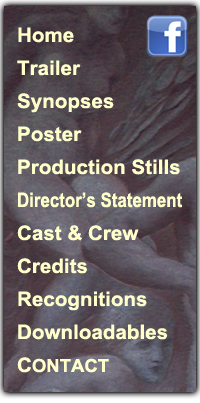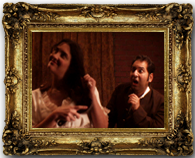smaller.png)
"The Happy Husband"
(USA / 2011 / 17 minutes)
Director's Mission Statement
Life is hard, and love can be harder. Before our age of pop culture and correctness, great comedic playwrights were uninterested in tales of love's glories, fables of rewarded chivalry, and splashy idealizations of the opposite sex. From across the centuries, they've shown us the unadulterated, intuitive, and at times painful truth which every person who has ever loved knows ~ but which few are willing or able to embrace. Their art breathed life into this truth through a special kind of laughter that dries tears, heals hearts, and lights souls with ageless wisdom.
Written in 1675, William Wycherley's play "The Country Wife" portrays themes as old as time itself: the insatiable desires for love and sex, the folly of equating the two, the unmatchable value of a wife's faithfulness, the ego-gratifying attraction to danger, the ultimate fear of being cuckolded, and the mad lengths to which man goes to repel his competition. What Wycherley's genius did not offer, however, was a solution to this plight. Enter "The Happy Husband".
This film evolved over a period of two and a half years from 2008 to 2011. It began as a low-key showcase of acting, and turned into a festival of image and sound, a celebration of lost cultural heritage, and a humorous dose of good advice that addresses a new reality, and a hitherto silent zeitgeist, in men's and women's changing expectations in relationships. Fans of British humor and lovers of Late Renaissance art and music ~ as well as the cynical, the lonely, and the happily attached ~ can each experience something of lasting value through "The Happy Husband". Society's well-being could depend upon it.
Marc Salgia



